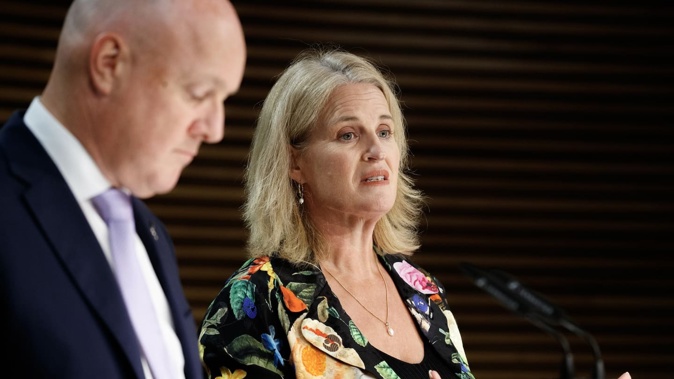
Social Development Minister Louise Upston revealed new forecasts for the number of people likely to be on the jobseeker benefit – the new figures show jobseeker numbers will peak at 214,000 in January 2025.
If this forecast turns out to be correct, it will mean the Government has overseen about 24,000 additional people going on to a jobseeker benefit, despite a Government target to reduce the number of jobseekers by 50,000 – although the Government has set itself a deadline of 2030, meaning it could still potentially hit it.
Upston told the Herald that jobseeker numbers “have long been forecast to get worse before they get better, and we knew this when we set our target to reduce the number of people on Jobseeker Support by 50,000 over six years.
“We inherited an economy in the grip of a cost-of-living crisis from Labour and rising unemployment is one of the lingering after-effects. Turning this around won’t be easy, but we are ambitious,” she said.
Labour’s social development spokeswoman Carmel Seupuloni said the new figures meant the Government was presiding over an increase rather than a decrease of beneficiary numbers as promised.
The new forecast is an increase of 11,500 on the last set of forecasts published at the Budget, which forecast jobseeker numbers to hit 202,500 in January 2025.
Upston revealed the figure in a debate in with figures showing the number of people currently on the jobseeker benefit was 203,709.
Upston revealed the figure in an debate in Parliament this week over the Budget.
 The most recently quarterly report on the Government's target. Graph / DPMC
The most recently quarterly report on the Government's target. Graph / DPMC
This is the third time the forecast was revised upwards since the Government took office. The Ministry of Social Development’s figures for Treasury’s Prefu forecasts, released prior to the election, had jobseeker recipient numbers peaking at around 197,400 in January 2025. A few months later in December, the Treasury’s Hyefu forecasts revised that figure upwards slightly to 1985,000.
Upston is the responsible minister for one of the Government’s nine public service targets, which is to reduce beneficiary numbers by 50,000 by 2030. Hitting the target would mean just 140,000 people will be receiving the jobseeker benefit by 2030.
Upston told the House that the revised forecast “doesn’t change our target”.
The Department of Prime Minister and Cabinet’s (DPMC) reporting on the target rate’s achievability was “feasible” and it “doesn’t change the work we’re doing, and actually what I would like to put on record is that our work exits in July and August this year are 1,500 up on the same time a year ago, so what we’re doing is working”, Upston said, citing figures for people who left a benefit to go to work.
She partly blamed the previous Government, saying that under their watch, “we have an additional 50,000 children growing up in benefit-dependent households”.
Sepuloni slammed the Government for a “backwards” attitude.
“The backwards ‘tough on beneficiaries’ sanctions and Budget decisions will cause child poverty will increase from 12.6% to 13.4% this year alone. According to the Child Poverty Action Group, growing unemployment could mean an additional 20,000 children in poverty,” Sepuloni said.
“It’s a tough time for New Zealanders and this Government’s actions are making things worse, not better. They have made the deliberate decision to lay off thousands of public servants, stopping the investment in infrastructure. We have lost 8000 jobs in the building and construction sector, factories are closing and the health sector suffers under hiring freezes,” she said.
Thomas Coughlan is Deputy Political Editor and covers politics from Parliament. He has worked for the Herald since 2021 and has worked in the press gallery since 2018.
Take your Radio, Podcasts and Music with you









